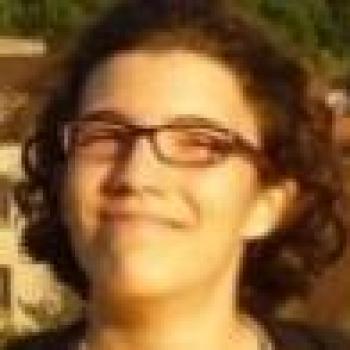Biography
My name is Afroditi Papadopoulou and I am currently a Maria Goeppert Mayer fellow at Argonne National Laboratory. I got my PhD at Massachusetts Institute of Technology and I am performing my research both at Fermi National Laboratory and Thomas Jefferson Laboratory on precision neutrino- and electron-nucleus interactions as part of the MicroBooNE, SBND, DUNE, and Electrons-4-Neutrinos collaborations.
Neutrino physics is a vibrant field of research which has been rapidly evolving since the recognition of neutrino oscillations with the 2015 Nobel Prize in Physics. Next generation neutrino experiments will try to extract the oscillation parameters with unprecedented accuracy. The latter constitutes a major step towards improving our understanding of the the Standard Model and a stepping stone for searches of new physics beyond it. I am an expert on the extraction of cross sections and the simulation development, both of which are key elements towards this quest of high-precision measurements.
I have already assumed a leading position in the MicroBooNE cross-section working group at Fermilab as a cross section convener and by extracting the first single- [Phys. Rev. Lett. 125, 201803 (2020)] and double-differential [arXiv:2301.03700, arXiv:2301.03706] cross sections using muon-neutrino - argon quasielastic-like events . These high-impact studies were the first ones using an exclusive interaction channel and datasets from the MicroBooNE Liquid Argon Time Projection Chamber, and identified parts of the available phase-space where an underlying theory improvement is imperative. To successfully obtain that result, I developed a powerful cosmic rejection machinery to minimize the dominant background [Eur. Phys. J. C 79, 673 (2019)]. I further used a pioneering technique to use real cosmic data to better characterize these backgrounds in the neutrino simulation for MicroBooNE.
As the lead analyzer for the ”Electrons For Neutrinos” collaboration at Jefferson Lab, I extract electron scattering cross sections from the CLAS collaboration measurements. I also test neutrino event generators against mono-energetic, wide phase-space, electron scattering data from Jefferson Lab and older, more limited, data from SLAC and Saclay. This allowed me to quantify the existing data-simulation discrepancies [Phys. Rev. D 103, 113003 (2021)] and was the starting point in terms of improving the GENIE Neutrino Event Generator [Eur. Phys. J. Spec. Top. 230, 4449–4467 (2021)]. Through this work, I have gained a profound understanding of how to structure and to benefit from an electron-based analysis to inform neutrino experiments, as well as to identify crucial issues in our simulation.
